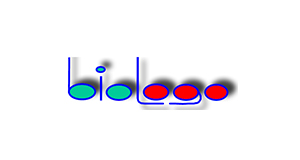AGE, Advanced Glycation End Products
AGE, Advanced Glycation End Products, Host: Rabbit, Polyclonal
SKU
BILAGE102-1.0
Packaging Unit
1 ml
Manufacturer
BioLogo
Availability:
loading...
Price is loading...
Background: This antibody is suitable for the detection of different AGE products in tissues, tissue extracts and body fluids. Long-term incubation of proteins with glucose leads, through Schiff's base and Amadori rearrangement products, to the formation of advanced glycation end products (AGE) which are characterized by fluorescence, brown color and inter- and intra-molecular cross-linking. Recent immunological studies using anti-AGE antibodies demonstrated the presence of AGE in (i) human lens, (ii) renal proximal tubules in patients with diabetic nephropathy and chronic renal failure, (iii) atherosclerotic lesions of arterial walls, (iv) ß2-microglobulin of carpal tunnel amyloid fibril deposits in patients with hemodialysis-related amyloidosis and (v) brain tissues of patients with Alzheimer’s disease. These results suggested the potential role of AGE in normal aging and age-enhanced disease processes. Advanced Glycation End Products (AGE), cross-reactivity BSA and HSA <1%.
Positive Control: human lens, arteriosclerotic plaques.
Immunogen: Advanced Glycation End Products /BSA/HSA.
Purification Method: Protein A affinity purified IgG in PBS pH 7.15 containg 0.05% sodium azide**.
Concentration: Approximately 1mg/ml.
Source: Serum from rabbits immunized with Advanced Glycation End Products /BSA/HSA.
References: 1. Horiuchi S., Araki N., and Morino Y. (1991) Immunological approach to characterize advanced glycation end products of the Maillard reaction: Evidence for the presence of a common stucture. J. Biol. Chem. 266; 7329-7332. 2. Araki N., Ueno N., Chakrabarti B., Morino Y., and Horiuchi S. (1992) Immunochemical evidence of the presence of advanced glycation end products in human lens proteins and its positive correlation with aging. J. Biol. Chem. 267; 10211-10214. 3. Miyata T., Odo O., Inagi R., Iida Y., Araki N., Yamada N., Horiuchi S., Taniguchi N., Maeda, et al. (1993) ß2-Microglobulin modified with advanced glycation end products is a major component of haemodialysis-associated amyloidosis. J. Clin. Invest. 92; 1243-1252. 4. Kume S., Takeya M., Mori T., Araki N., Suzuki H., Horiuchi S., Kodama T., Miyauchi Y., and Takahashi K. (1995) Immunohistochemical and ultrastructural detection of advanced glycation end products in atherosclerotic lesions of human aorta using a novel specific monoclonal antibody. Am J. Pathol. 147; 654-667. 5. Kimura T., Takamatsu J., Ikeda K., Kondo A., Miyakawa T., and Horiuchi S. (1996) Accumulation of advanced glycation end products of the Maillard reactionwith age in human hippocampal neurons. Neurosci. Lett. 208; 53-56.
Caution: These antibodies are intended for in vitro research use only. They must not be used for clinical diagnostics and not for in vivo experiments in humans or animals. ** The preservative sodium azide is known to be poisonous and potentially hazardous to health. It should be handled only by trained staff. Despite of the product's low azide concentration it must be handled with care. Dispose according to regional rules!
Positive Control: human lens, arteriosclerotic plaques.
Immunogen: Advanced Glycation End Products /BSA/HSA.
Purification Method: Protein A affinity purified IgG in PBS pH 7.15 containg 0.05% sodium azide**.
Concentration: Approximately 1mg/ml.
Source: Serum from rabbits immunized with Advanced Glycation End Products /BSA/HSA.
References: 1. Horiuchi S., Araki N., and Morino Y. (1991) Immunological approach to characterize advanced glycation end products of the Maillard reaction: Evidence for the presence of a common stucture. J. Biol. Chem. 266; 7329-7332. 2. Araki N., Ueno N., Chakrabarti B., Morino Y., and Horiuchi S. (1992) Immunochemical evidence of the presence of advanced glycation end products in human lens proteins and its positive correlation with aging. J. Biol. Chem. 267; 10211-10214. 3. Miyata T., Odo O., Inagi R., Iida Y., Araki N., Yamada N., Horiuchi S., Taniguchi N., Maeda, et al. (1993) ß2-Microglobulin modified with advanced glycation end products is a major component of haemodialysis-associated amyloidosis. J. Clin. Invest. 92; 1243-1252. 4. Kume S., Takeya M., Mori T., Araki N., Suzuki H., Horiuchi S., Kodama T., Miyauchi Y., and Takahashi K. (1995) Immunohistochemical and ultrastructural detection of advanced glycation end products in atherosclerotic lesions of human aorta using a novel specific monoclonal antibody. Am J. Pathol. 147; 654-667. 5. Kimura T., Takamatsu J., Ikeda K., Kondo A., Miyakawa T., and Horiuchi S. (1996) Accumulation of advanced glycation end products of the Maillard reactionwith age in human hippocampal neurons. Neurosci. Lett. 208; 53-56.
Caution: These antibodies are intended for in vitro research use only. They must not be used for clinical diagnostics and not for in vivo experiments in humans or animals. ** The preservative sodium azide is known to be poisonous and potentially hazardous to health. It should be handled only by trained staff. Despite of the product's low azide concentration it must be handled with care. Dispose according to regional rules!

 Deutsch
Deutsch







